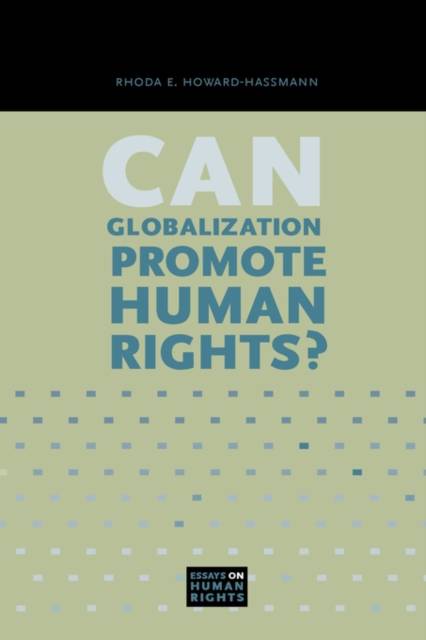
- Retrait gratuit dans votre magasin Club
- 7.000.000 titres dans notre catalogue
- Payer en toute sécurité
- Toujours un magasin près de chez vous
- Retrait gratuit dans votre magasin Club
- 7.000.000 titres dans notre catalogue
- Payer en toute sécurité
- Toujours un magasin près de chez vous
Description
Globalization has affected everyone's lives, and the reactions to it have been mixed. Legal scholars and political scientists tend to emphasize its harmful aspects, while economists tend to emphasize its benefits. Those concerned about human rights have more often been among the critics than among the supporters of globalization. In Can Globalization Promote Human Rights? Rhoda Howard-Hassmann presents a balanced account of the negative and positive features of globalization in relation to human rights, in both their economic and civil/political dimensions.
On the positive side, she draws on substantial empirical work to show that globalization has significantly reduced world poverty levels, even while, on the negative side, it has exacerbated economic inequality across and within countries. Ultimately, she argues, social action and political decision making will determine whether the positive effects of globalization outweigh the negatives. And, in contrast to those who prefer either schemes for redistributing wealth on moral grounds or authoritarian socialist approaches, she makes the case for social democracy as the best political system for the protection of all human rights, civil and political as well as economic.
Spécifications
Parties prenantes
- Auteur(s) :
- Editeur:
Contenu
- Nombre de pages :
- 200
- Langue:
- Anglais
- Collection :
- Tome:
- n° 3
Caractéristiques
- EAN:
- 9780271036915
- Date de parution :
- 15-02-14
- Format:
- Livre broché
- Format numérique:
- Trade paperback (VS)
- Dimensions :
- 152 mm x 229 mm
- Poids :
- 294 g







